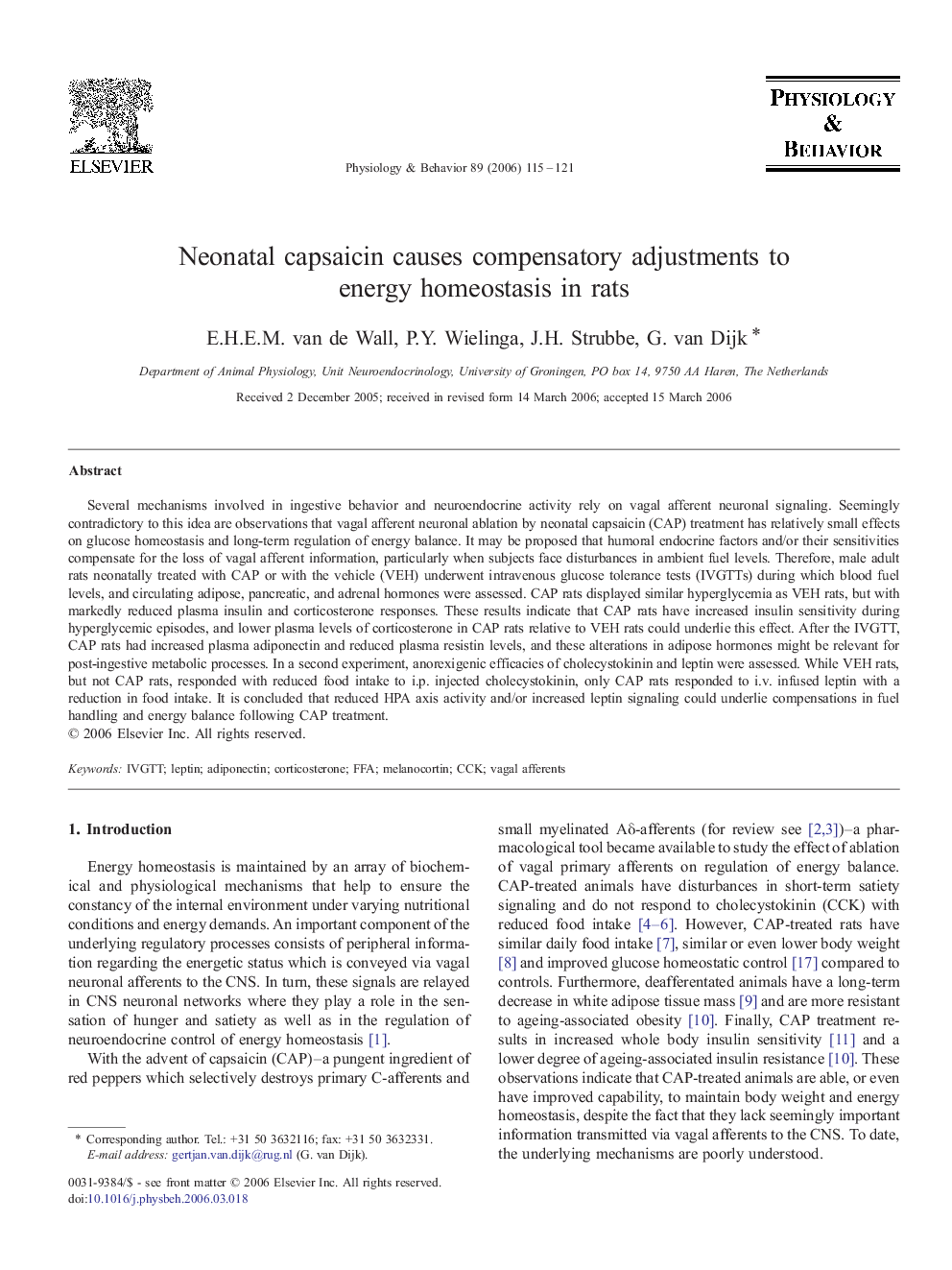| کد مقاله | کد نشریه | سال انتشار | مقاله انگلیسی | نسخه تمام متن |
|---|---|---|---|---|
| 2846439 | 1166420 | 2006 | 7 صفحه PDF | دانلود رایگان |
عنوان انگلیسی مقاله ISI
Neonatal capsaicin causes compensatory adjustments to energy homeostasis in rats
دانلود مقاله + سفارش ترجمه
دانلود مقاله ISI انگلیسی
رایگان برای ایرانیان
کلمات کلیدی
موضوعات مرتبط
علوم زیستی و بیوفناوری
بیوشیمی، ژنتیک و زیست شناسی مولکولی
فیزیولوژی
پیش نمایش صفحه اول مقاله

چکیده انگلیسی
Several mechanisms involved in ingestive behavior and neuroendocrine activity rely on vagal afferent neuronal signaling. Seemingly contradictory to this idea are observations that vagal afferent neuronal ablation by neonatal capsaicin (CAP) treatment has relatively small effects on glucose homeostasis and long-term regulation of energy balance. It may be proposed that humoral endocrine factors and/or their sensitivities compensate for the loss of vagal afferent information, particularly when subjects face disturbances in ambient fuel levels. Therefore, male adult rats neonatally treated with CAP or with the vehicle (VEH) underwent intravenous glucose tolerance tests (IVGTTs) during which blood fuel levels, and circulating adipose, pancreatic, and adrenal hormones were assessed. CAP rats displayed similar hyperglycemia as VEH rats, but with markedly reduced plasma insulin and corticosterone responses. These results indicate that CAP rats have increased insulin sensitivity during hyperglycemic episodes, and lower plasma levels of corticosterone in CAP rats relative to VEH rats could underlie this effect. After the IVGTT, CAP rats had increased plasma adiponectin and reduced plasma resistin levels, and these alterations in adipose hormones might be relevant for post-ingestive metabolic processes. In a second experiment, anorexigenic efficacies of cholecystokinin and leptin were assessed. While VEH rats, but not CAP rats, responded with reduced food intake to i.p. injected cholecystokinin, only CAP rats responded to i.v. infused leptin with a reduction in food intake. It is concluded that reduced HPA axis activity and/or increased leptin signaling could underlie compensations in fuel handling and energy balance following CAP treatment.
ناشر
Database: Elsevier - ScienceDirect (ساینس دایرکت)
Journal: Physiology & Behavior - Volume 89, Issue 1, 30 August 2006, Pages 115-121
Journal: Physiology & Behavior - Volume 89, Issue 1, 30 August 2006, Pages 115-121
نویسندگان
E.H.E.M. van de Wall, P.Y. Wielinga, J.H. Strubbe, G. van Dijk,